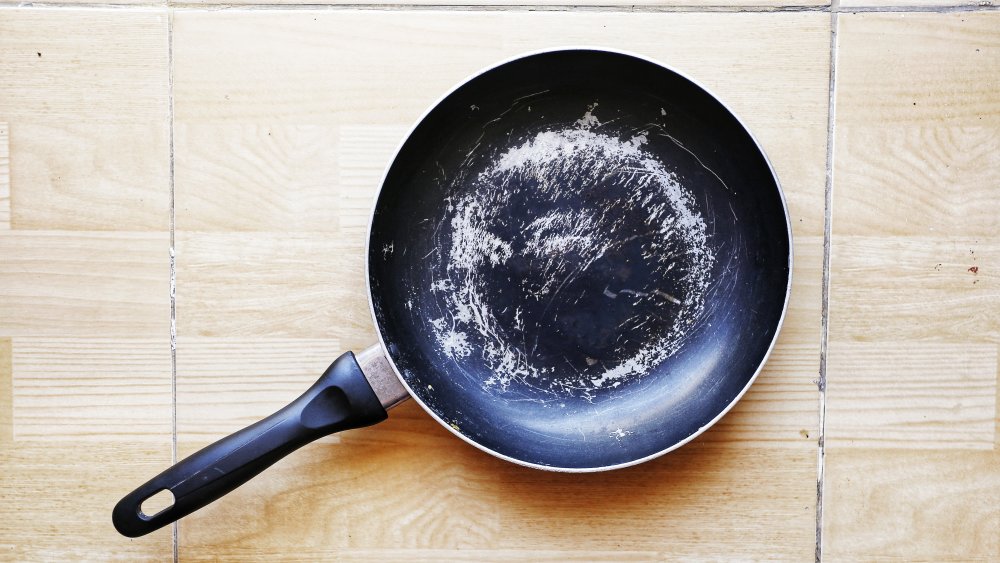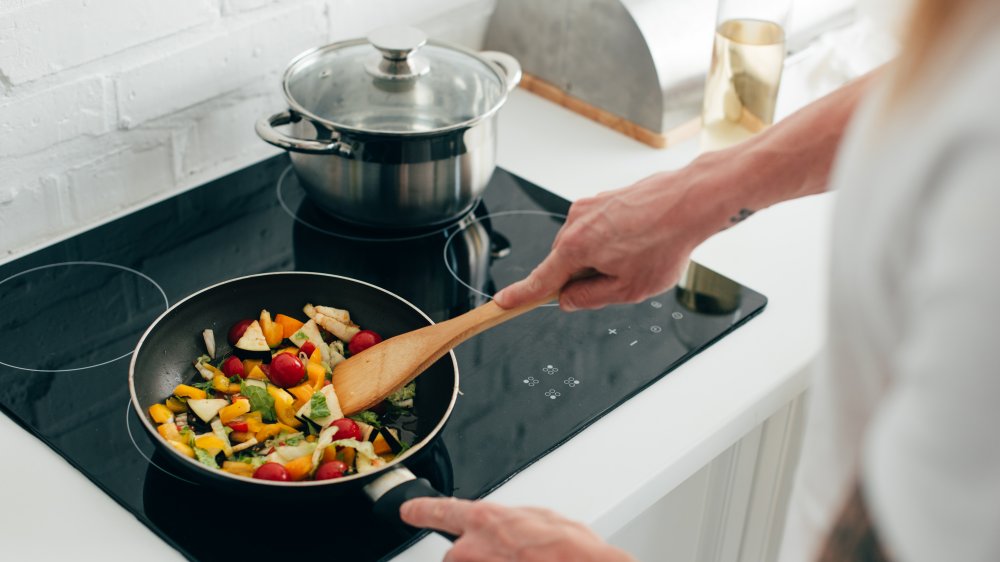Are Scratched Nonstick Pans Dangerous?
When it comes to nonstick cookware, there seems to be two different camps of people. There are people who throw away a Teflon pan the second it gets a scratch on it, no matter how small. And then there are those of us who will use a pan that has so many scratches it looks like somebody took a belt-sander to it. According to the San Francisco Gate, the coating of Teflon that's responsible for nonstick cookware has been around for over 60 years, and people have been worried about possibly getting bits of it in their food for nearly as long.
After all, metal utensils and even cleaning pads can scratch chips of the Teflon off pretty easily, and the perfluorooctanoic acid (PFOA) that was originally used in processing the Teflon has been linked to cancer in lab mice. Nobody wants that in their scrambled eggs. So is the scratched-up pan that you bought three years ago from Walmart going to kill you?
Your scratched nonstick pan isn't a health hazard
People love nonstick pans because they can whip up a meal using less oil, and cleaning them is way faster than scrubbing a traditional metal skillet. Teflon may be one of science's greatest contributions to cooking, but that doesn't mean people want it in their cooking. Thankfully, even if you do ingest flakes of Teflon that find their way into your food, it doesn't mean that the Grim Reaper is about to come knocking.
According to Scientific American, most makers of nonstick pans have phased out the use of PFOA in their Teflon, and any small bits that you have eaten will simply pass through your digestive tract. Also, even if you're using a super-old pan coated with PFOA-processed Teflon, there is still good news to be had. Joe Schwarcz, director of McGill University's Office for Science & Society, says that when it comes toxins, the dosage is the key factor in poisoning (via The Los Angeles Times).
Schwartz even conducted an experiment with a heavily scratched cooking pan and analyzed its PFOA levels. The pan didn't produce anywhere near the PFOA levels that would be needed to cause an adverse effect in even a 20-pound child. "So the bottom line here is that exposure to PFOA from a Teflon coated pan is insignificant," Schwartz confirmed.
The only real downside to using a scratched up nonstick pan is that you may find its nonstick factor isn't quite as good as it used to be.

